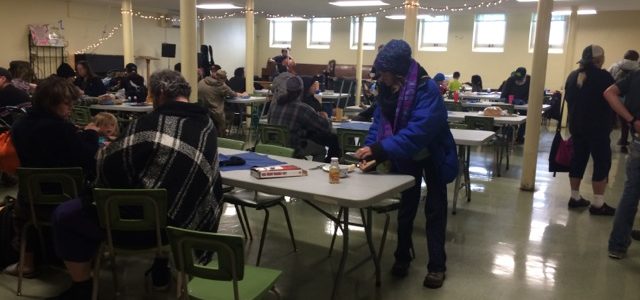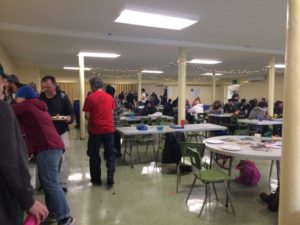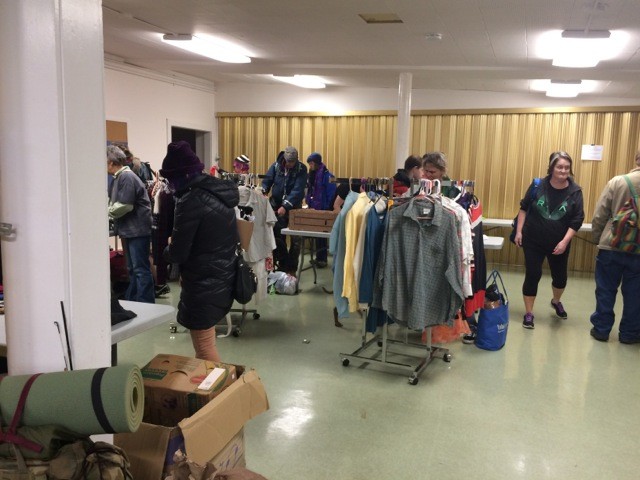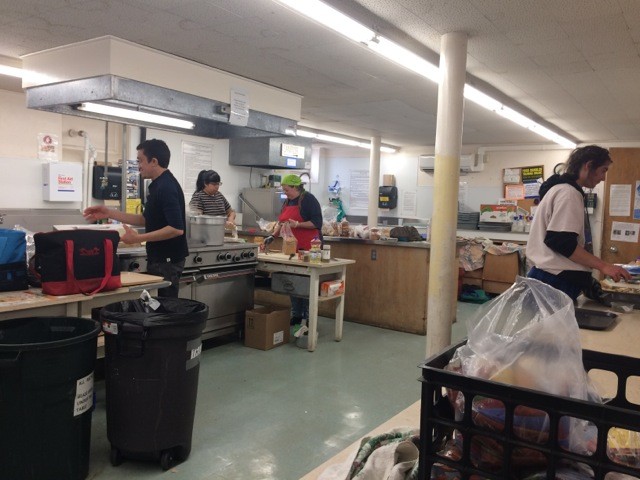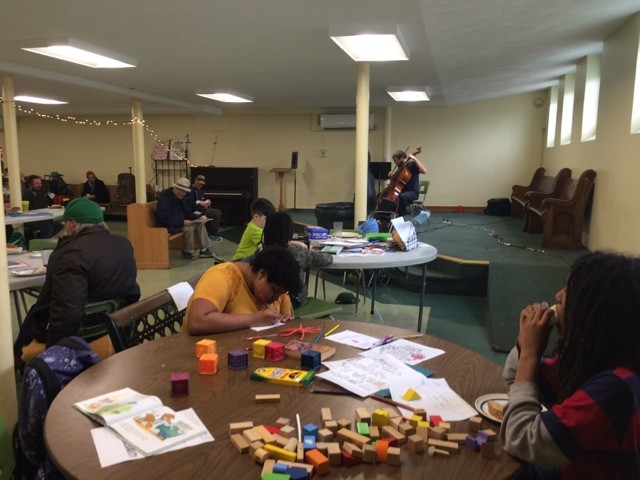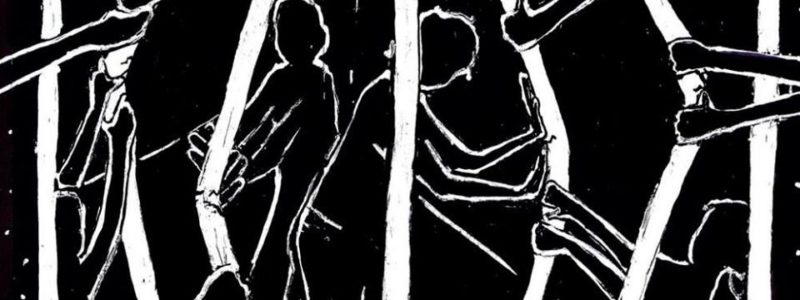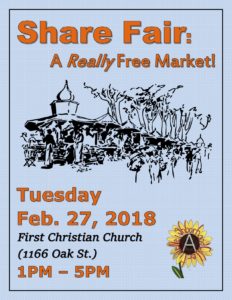At every full collective gathering we acknowledge that we live in a society founded on stolen land and stolen lives. Someone researches and presents a relevant topic and then we take a moment of silence to reflect. We share the research here for others as well.
Prison labor is legalized slavery. While technically american slavery was technically abolished in 1865, a loophole in the 13th Amendment has allowed it to continue “as a punishment for crimes”. Not surprisingly, corporations have lobbied for a broader and broader definition of “crime” in the last 150 years.
After the Civil War, a system of “hiring out prisoners” was introduced in order to continue the slavery tradition. Freed slaves were charged with not carrying out their commitments or petty thievery – which were almost never proven – and were then “hired out” for cotton picking, working in mines and building railroads. From 1870 until 1910 in the state of Georgia, 88% of “hired-out” convicts were Black. In Alabama, 93% of “hired-out” miners were Black. In Mississippi, a huge prison farm similar to the old slave plantations replaced the system of hiring out convicts. The notorious Parchman plantation existed until 1972.
With 5 percent of the world’s population and 25 percent of the world’s prison population, the United States has the largest incarcerated population in the world. No other society in history has imprisoned more of its own citizens. There are half a million more prisoners in the U.S. than in China, which has five times our population. Approximately 1 in 100 adults in America were incarcerated in 2014. Out of an adult population of 245 million that year, there were 2.4 million people in prison, jail or some form of detention center. The vast majority – 86 percent – of prisoners have been locked up for non-violent, victimless crimes, many of them drug-related. The prison population is disproportionately African American and Latino resulting from the criminal justice policies ransacking minority communities across the United States. African Americans are incarcerated at a rate five times higher than that of whites. In states like Virginia and Oklahoma, one in every 14 or 15 African American men are put in prison.
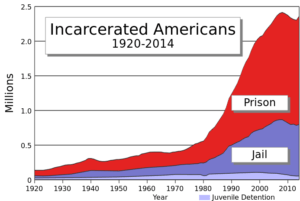
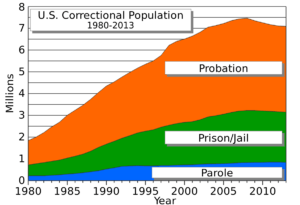
For people doing time in federal prisons, work isn’t optional. The Crime Control Act of 1990 established that all federal prisoners who are physically capable of work must have a job while serving their sentences. People who choose not to work are locked away in solitary confinement — deprived of human contact.
At the federal level, the Bureau of Prisons operates a program known as Federal Prison Industries, under the more palatable name of UNICOR. UNICOR earned $500m in sales in 2016 and paid prisoners roughly $0.90 an hour to produce everything from mattresses, spectacles, and road signs to shooting targets and body armor, which is especially cruel work for the people who come from communities terrorized by the police.
Similar schemes exist at the state level as well. In Idaho, prisoners roast potatoes. In Kentucky, they sell $1m worth of cattle. California’s program was expected to generate $232m in sales in 2017. Around 30-40% of the firefighters responding to the wildfires that ravages the state in 2017 were incarcerated, saving $124m a year for the state. Prisoners are paid an average of $2 a day for this dangerous work and receive very little training. California had a year long litigation to reduce the population of prisons deemed unconstitutionally over-crowded by the Supreme Court in 2010. One of the reasons the state gave in court for not releasing more [prisoners] in California was because “It would be bad for the economy.” The same argument given by plantation owners in the confederacy.
In Louisiana, criminal justice reform caused the release of some non-violent offenders early, because of over-crowding and because these sentences were largely understood to be draconian and cruel. The sheriff of Caddo Parish objected publicly, describing state prisoners as a “necessary evil to keep the doors open” at the jail his office runs. “In addition to the bad ones… they’re releasing some good ones that we use every day to wash cars, to change oil in our cars, to cook in the kitchens, to do all that where we save money,”
Influenced by enormous corporate lobbying, the United States Congress enacted the Prison Industry Enhancement Certification Program in 1979 which permitted US companies to use prison labor. For the tycoons who have invested in the prison industry, it has been like finding a pot of gold. They don’t have to worry about strikes or paying unemployment insurance, vacations or comp time. All of their workers are full-time, and never arrive late or are absent because of family problems; moreover, if they don’t like the pay of 25 cents an hour and refuse to work, they are locked up in isolation cells.
These are some of the factors that increase the profit potential for those who invest in the prison industry complex:, according to reports by human rights organizations.
- Jailing persons convicted of non-violent crimes, and long prison sentences for possession of microscopic quantities of illegal drugs. Federal law stipulates five years’ imprisonment without possibility of parole for possession of 5 grams of crack or 3.5 ounces of heroin, and 10 years for possession of less than 2 ounces of rock-cocaine or crack. A sentence of 5 years for cocaine powder requires possession of 100 times more than the quantity of rock cocaine for the same sentence. Most of those who use cocaine powder are white, middle-class or rich people, while mostly Blacks and Latinos use rock cocaine. In Texas, a person may be sentenced for up to two years’ imprisonment for possessing 4 ounces of marijuana. In New York, the 1973 Nelson Rockefeller anti-drug law provides for a mandatory prison sentence of 15 years to life for possession of 4 ounces of any illegal drug.
- The passage in 13 states of the “three strikes” laws (life in prison after being convicted of three felonies), made it necessary to build 20 new federal prisons. One of the most disturbing cases resulting from this measure was that of a prisoner who for stealing a car and two bicycles received three 25-year sentences.
- Longer sentences.
- The passage of laws that require minimum sentencing, without regard for circumstances.
- A large expansion of work by prisoners creating profits that motivate the incarceration of more people for longer periods of time.
- More punishment of prisoners, so as to lengthen their sentences.
How can you help?
Boycott the Corporations Profiting from Prison Slavery
Being aware of where your products are being made and where your money is going is a first step toward real change. People criticize clothing companies for using overseas sweatshops, and we must put that same awareness on prison labor happening in this country. Educate yourself and work to raise awareness of the plight of those of us locked in cages and “forced to do grueling, back-breaking, and dangerous work for nickles and dimes, while corporations rack up billions of dollars in profit off the cheap labour.”
Complicating a straight-forward boycott, prison labor helps produce goods and services for almost every big business in America. The problem isn’t limited to brands with bad reputations. Starbucks, Victoria’s Secret, Whole Foods, Walmart, Dell, Intel, AT&T, Verizon, Sprint, American Airlines, Nintendo, and so many more have all used prison workers to increase corporate profits.
Read more about the companies that profit off of prison/slave labor today:
Support resistance happening inside the walls!
Stay informed about resistance happening inside the walls and seek ways to support our exploited comrades locked in cages. There is resistance happening all the time, and it is often rare the news reaches many of us outside. One great example of recent resistance began on January 15th, coinciding with MLK Day, in nonviolent protest of conditions in Florida prisons including a work stoppage, or ‘laydown’, and commissary boycott. Operation PUSH reportedly included thousands of prisoners in at least eight facilities. I was unable to find any information about an end to Operation PUSH and, since they stated they were prepared to “stay down indefinitely” until someone addressed their concerns, I am hopeful the resistance continues. (I will update this post when I find out more information.)
The following text is an excerpt from the original announce message regarding Operation PUSH:
“FL Prisoners Call for Operation PUSH to Improve the Lives of Incarcerated People and the Communities We Come From
Sending out an S.O.S. to all parties concerned!
We are currently forming a network agency within D.O.C. We are asking all prisoners within the Department of Corrections to take a stand by laying down starting January 15, 2018, until the injustice we see facing prisoners within the Florida system is resolved.
We are calling on all organized groups as well as religious systems to come together on the same page. We will be taking a stand for:
1. Payment for our labor, rather than the current slave arrangement
2. Ending outrageous canteen prices
3. Reintroducing parole incentives to lifers and those with Buck Rogers dates”
Their primary demands are clear and concise: end prison slavery, stop price gouging, and fully return parole. They believe these issues have directly created the overcrowding that is responsible for the deplorable conditions in Florida prisons.
For more information and to help keep you informed:
Organize locally to support prison abolition!
Follow your inspiration and passion when considering how to organize in your community. Think about how to connect with people and projects that raise awareness, build community, reduce harm, and affect real, positive change.
There is a call-out for local solidarity events on June 19th, 2018. Juneteenth is an abolitionist holiday in which we celebrate and reflect about the moment in history when Slaves in Texas finally got word that the Civil War had ended. The following is an excerpt from an article published on the Fight Toxic Prisons website:
“Peace & Blessings Sisters and Brothers in the struggle!
My name is Keith ‘Malik’ Washington and I am a human rights and civil rights activist who is currently incarcerated in the state of Texas... This year during your regular Juneeenth celebrations and fellowship with loved ones and members of your Community—our community—I am requesting you consider doing something that will help raise the public’s awareness in regards to the struggle… For starters, I encourage all of you to arrange viewings of Director Ava Duvernay’s trailblazing film “13th” on Juneteenth. Let’s create positive conversations and dialogues about this topic. I and hundreds of like minded activists across the Nation would certainly appreciate your help.”
A Call to End Prison Slavery: https://fighttoxicprisons.wordpress.com/2018/03/14/juneteenth-2018-a-call-to-end-prison-slavery/
We are looking into events currently being planned in the Eugene/Springfield area. If you are aware of an event, or would like to get involved, send us an email! contact@neighborhoodanaarchists.org
